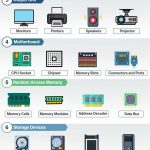Explore The Comprehensive Electronics 2 Syllabus: Master The Fundamentals And Unlock Your Potential Now!
Electronics 2 Syllabus: Exploring the World of Advanced Electronics
Introduction
Welcome, Readers! Today, we are going to delve into the fascinating world of electronics 2 syllabus. Electronics 2 is an advanced course that builds upon the fundamental concepts learned in electronics 1. In this article, we will provide you with a comprehensive overview of the electronics 2 syllabus, covering everything from the topics covered to the advantages and disadvantages. So, let’s get started!
1 Picture Gallery: Explore The Comprehensive Electronics 2 Syllabus: Master The Fundamentals And Unlock Your Potential Now!

Table of Contents
Overview of Electronics 2 Syllabus
What is Electronics 2?
Who Can Benefit from Electronics 2?
When is Electronics 2 Offered?
Where to Study Electronics 2?
Why Should You Consider Electronics 2?
How to Succeed in Electronics 2?
Advantages of Electronics 2 Syllabus
Disadvantages of Electronics 2 Syllabus
Frequently Asked Questions (FAQ)
Conclusion
Final Remarks
Overview of Electronics 2 Syllabus

Image Source: blogspot.com
Electronics 2 is an advanced course that focuses on the study of electronic circuits and systems. It covers topics such as analog electronics, digital electronics, microcontrollers, and integrated circuits. The syllabus is designed to provide students with a deep understanding of advanced electronic concepts and their applications.
What is Electronics 2?
Electronics 2 is a course that builds upon the foundation of electronics 1. It dives deeper into the study of electronic circuits, systems, and components. Students will learn about advanced topics such as operational amplifiers, digital logic gates, and microcontrollers. The course aims to enhance students’ knowledge and skills in designing and analyzing complex electronic circuits.
Who Can Benefit from Electronics 2?
Electronics 2 is primarily targeted towards students pursuing degrees in electrical engineering, electronics engineering, or related fields. However, anyone with a strong interest in electronics and a basic understanding of circuits can benefit from taking this course. It is also suitable for professionals looking to expand their knowledge and skills in the field of electronics.
When is Electronics 2 Offered?
Electronics 2 is typically offered as an advanced-level course in universities and technical institutes. The specific timing of the course may vary depending on the educational institution. It is usually offered in the second or third year of undergraduate studies or as part of a specialized electronics program.
Where to Study Electronics 2?
Electronics 2 is offered by various educational institutions around the world. You can find this course in universities, technical institutes, and online platforms. It is important to choose a reputable institution that has experienced faculty and well-equipped labs to ensure a quality learning experience.
Why Should You Consider Electronics 2?
Electronics 2 offers numerous benefits for students interested in the field of electronics. By taking this course, you will gain a deeper understanding of advanced electronic concepts and their applications. It will enhance your problem-solving skills and provide you with hands-on experience in designing and analyzing complex electronic circuits. Electronics 2 also opens up exciting career opportunities in various industries, such as telecommunications, robotics, and consumer electronics.
How to Succeed in Electronics 2?
Succeeding in electronics 2 requires dedication, hard work, and a systematic approach. Here are a few tips to help you excel in this course:
🚀 Develop a solid foundation in electronics 1 concepts before moving on to electronics 2.
🚀 Stay organized and manage your time effectively. Electronics 2 can be challenging, so allocate enough time for studying and completing assignments.
🚀 Actively participate in class and ask questions. This will help you clarify any doubts and deepen your understanding of the subject.
🚀 Make use of additional resources such as textbooks, online tutorials, and reference materials to supplement your learning.
🚀 Practice solving a variety of electronic circuit problems to improve your analytical and problem-solving skills.
🚀 Collaborate with fellow students and form study groups to discuss and learn from each other’s perspectives.
Advantages of Electronics 2 Syllabus
Electronics 2 syllabus offers several advantages, including:
🌟 Provides in-depth knowledge of advanced electronic concepts and their applications.
🌟 Enhances problem-solving and analytical skills through complex circuit analysis and design.
🌟 Offers hands-on experience with industry-standard tools and equipment used in the electronics field.
🌟 Opens up diverse career opportunities in industries such as telecommunications, robotics, and consumer electronics.
🌟 Equips students with the skills to pursue higher studies or research in specialized areas of electronics.
Disadvantages of Electronics 2 Syllabus
While electronics 2 syllabus offers many advantages, it also comes with a few disadvantages, such as:
🔴 Requires a solid understanding of electronics 1 concepts, making it challenging for students who struggle with the basics.
🔴 Involves complex mathematical calculations and circuit analysis, which can be overwhelming for some students.
🔴 Requires access to specialized equipment and resources, which may not be readily available in all educational institutions.
🔴 Can be time-consuming, requiring significant effort and dedication to succeed in the course.
Frequently Asked Questions (FAQ)
Q: Is electronics 2 suitable for beginners in electronics?
A: Electronics 2 is designed for students who have already completed electronics 1 or have a basic understanding of electronic circuits. It may not be suitable for beginners without prior knowledge in electronics.
Q: Can I take electronics 2 if I am not an engineering student?
A: While electronics 2 is primarily offered in engineering programs, anyone with a strong interest in electronics can take the course. However, it is recommended to have a basic understanding of circuits and electronic components.
Q: What are the prerequisites for electronics 2?
A: The prerequisites for electronics 2 may vary depending on the educational institution. However, it typically requires completion of electronics 1 or an equivalent course that covers the basics of electronic circuits and components.
Q: What career opportunities are available after completing electronics 2?
A: Completing electronics 2 can open up various career opportunities in industries such as telecommunications, consumer electronics, automotive electronics, and robotics. Job roles may include electronics engineer, circuit design engineer, research scientist, and more.
Q: Can I pursue higher studies in electronics after completing electronics 2?
A: Absolutely! Electronics 2 provides a strong foundation for pursuing higher studies in specialized areas of electronics. It equips students with the necessary knowledge and skills to excel in advanced electronics courses and research.
Conclusion
In conclusion, electronics 2 syllabus offers an exciting journey into the world of advanced electronics. It provides students with in-depth knowledge and hands-on experience in designing and analyzing complex electronic circuits. While it may have its challenges, electronics 2 opens up a wide range of career opportunities in various industries. So, if you have a passion for electronics and want to take your skills to the next level, consider exploring the electronics 2 syllabus.
Final Remarks
Dear Readers, we hope this article has provided you with valuable insights into the electronics 2 syllabus. It is important to note that the specific syllabus and course structure may vary depending on the educational institution. Therefore, we recommend consulting the respective institution’s official website or course catalog for the most accurate and up-to-date information. Good luck on your journey in the world of advanced electronics!
This post topic: Electronics

